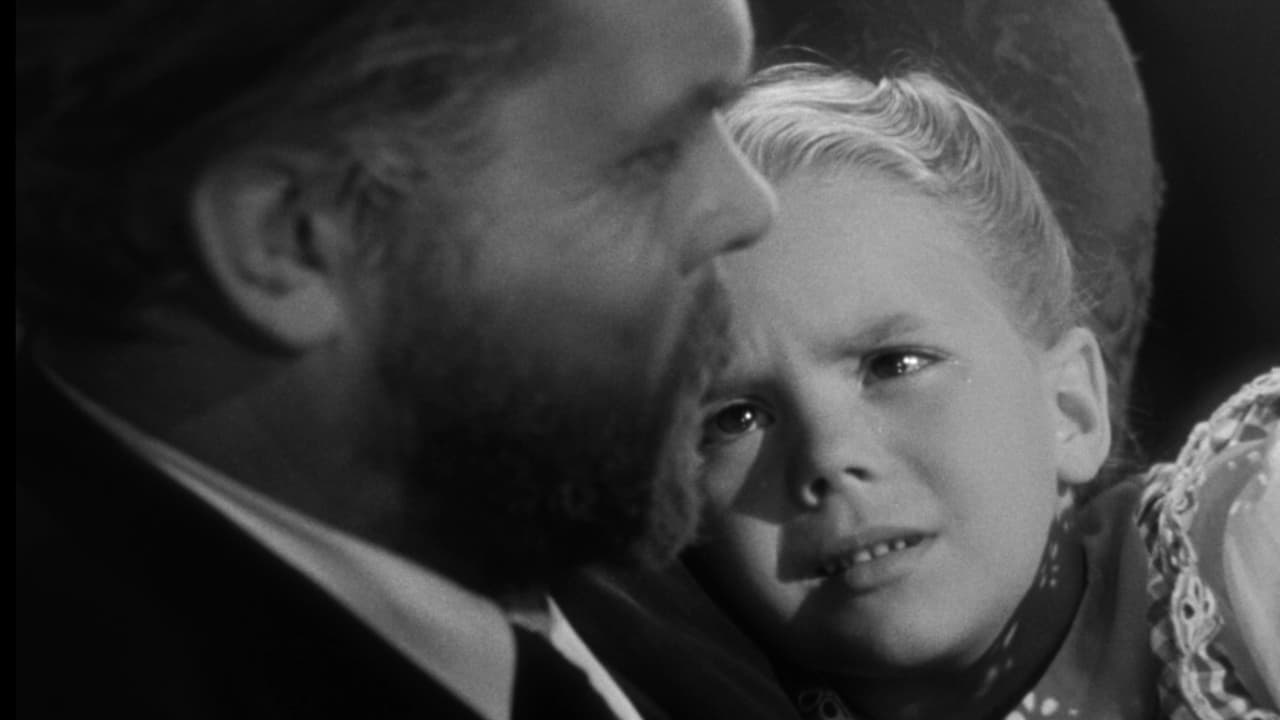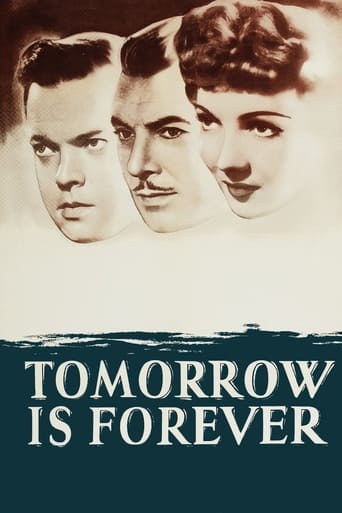

ridiculous rating
... View MoreMost undeservingly overhyped movie of all time??
... View Moren my opinion it was a great movie with some interesting elements, even though having some plot holes and the ending probably was just too messy and crammed together, but still fun to watch and not your casual movie that is similar to all other ones.
... View MoreThis is ultimately a movie about the very bad things that can happen when we don't address our unease, when we just try to brush it off, whether that's to fit in or to preserve our self-image.
... View MoreI LOVE this movie! I first saw it on TV in the early 50's when I was about 10 and bawled at the end, but with the kind of tears that make you feel good to have a human heart. I'm now 72 and its effect and my opinion have not changed. The plot's has been covered many times in these reviews, so I'll not go there, but the scene (knowing what we know) between Colbert and Welles when he tells her that what she has is the reality, is a heart-breaker with its loving generosity and sacrifice. Finally, when Welles comes in from the storm and is at the fireplace, full tears flow. And I'm not ashamed to admit it.Years later I actually did fall in love with Natalie Wood.
... View MoreTouching weeper about a man (Orson Welles) who goes off to fight in WWI, leaving his wife (Claudette Colbert) behind. Colbert is told he was killed in action but, in fact, he survived but was badly disfigured. He allows his wife to believe he is dead so that she can move on with her life. Decades later, Colbert is married to another man (George Brent). The son she was carrying when she believed Welles had died is now grown and believes Brent to be his natural father. Welles arrives in America to work with Brent, not knowing he is married to Colbert. Welles also brings along his adopted daughter (a very adorable Natalie Wood). It's a good movie of its kind with a trio of great leads and some impressive support from Wood in her first sizable role. It's also directed by Irving Pichel, an actor-turned-director who was quite underrated as both.
... View MoreTomorrow Is Forever finds Orson Welles and Claudette Colbert as a pair of young marrieds during World War I when Orson announces he's enlisted in the American Expeditionary Force. The young wife sees her gallant young husband off to war, not knowing that she's pregnant. When he's reported missing in action, Claudette's all at sea. Fortunately she's got a most sympathetic boss who has an eye for her in any event. Claudette marries George Brent and they raise the son she has by Welles and they also have a son of their own.Although as the romantic young husband John MacDonald, Welles doesn't quite cut it, as Erik Kessler, the German refugee who in reality is John MacDonald, Welles just shines. With a heavy beard, makeup, a German accent and a shambling gait courtesy of the last war, Welles totally succeeds in recreating himself on the screen. He's so totally different you can't blame Claudette for not recognizing him, I could barely. On the eve of World War II, Brent who is now a big time industrialist meets Welles who is now in his Kessler persona. He brings him home and while there's something eerily familiar to Claudette he becomes an adjunct family member.Watching Tomorrow Is Forever I have no doubt that director Irving Pichel gave Welles total command of his character. Most likely Welles even directed some of the scenes he was involved with.Orson Welles throughout his life appeared in a lot of garbage using his actor's salary to continue financing his own projects. Though he's a bit weak as the young husband, as the old refugee chemist it's a brilliant characterization. Orson gets good support from Claudette Colbert, George Brent and the rest of the cast.Too bad he didn't get to do the whole film, direct as well as act.
... View MoreI am stunned to see the vast majority of commentators describe this great film as "typical," "sentimental," and "melodramatic." That is to completely overlook the various philosophical and psychological aspects of the movie. Isolationism. Pacifism. Opposition to global hegemony and tyranny. All of these are at the essence of the dialog and the story. The need for humans to deny the temptation to live in the past and to embrace the future is the core of the movie - in addition to its TITLE. Reason must overcome emotionalism.That is made especially apparent in the scene where Kessler (Orson Welles) implicitly compares Mrs. Hamilton (Claudette Colbert) to his young charge, Margaret (Natalie Wood). While Mrs. Hamilton lost her husband on another continent, the Nazis murdered Margaret's parents right before her eyes. She is terrified by a "popper" because it causes her to "relive" the sound of bullets, the smell of gunpowder and the sight of blood - her parents' blood. Kessler gently coaxes Margaret into pulling the string on a second "popper" to prove that she doesn't need to be a victim of her fears. She can learn that it is not dangerous, but a mere "toy." She can overcome.The climactic scene between Kessler and Mrs. Hamilton is equally fabulous. The tension steadily mounts as Mrs. Hamilton presses Kessler to admit that he is her husband. Until his direct denial, the dialog is so sublime that it makes sense whether delivered by the woman's lost husband or by "Mr. Kessler." But it is not sentimental. To the contrary, Kessler's powerful philosophical arguments and psychological insights compel Mrs. Hamilton to reassess her life and come to the realization that it has been, is, and promises to be good. To throw that away for a memory would be sheer sentimental folly. "Embrace the good life you have" is the very clear message.Generally the acting is superb, however, in particular this is possibly Orson Welles' finest performance. There are no obvious double-takes or overly-long stares that are dead give-aways in most films that deal with a character with a hidden identity. This is a fabulously subtle performance. Welles' makeup is a little obvious and theatrical, but is not a distraction.In an incredible - and incredibly overlooked - performance, Natalie Wood convincingly portrays a young Austrian girl who speaks German as her native tongue, has lost both parents to Nazi violence and is suddenly thrust into a strange new country. Her performance is one of the best juvenile performances in all American cinema. The Max Steiner score is also very good, although I wish it had been a little more sub rosa. Just turning down the volume of the score to make it a little more subtle would have improved the film a little. However, it beautifully captures the mood of each scene.This movie has layers upon layers. It contains paradoxes and ironies that are profound enough for real reflection. The characters provide profound contrasts in philosophy and psychology. The device of having a husband apparently die (but in actuality refuse to return home because of his "broken" condition) provides ample opportunity for sentimentality. But that device is merely the springboard for a much richer exploration of the meaning of life and our place in the world. To fail to recognize this is to minimize this fabulous film and miss its point.
... View More